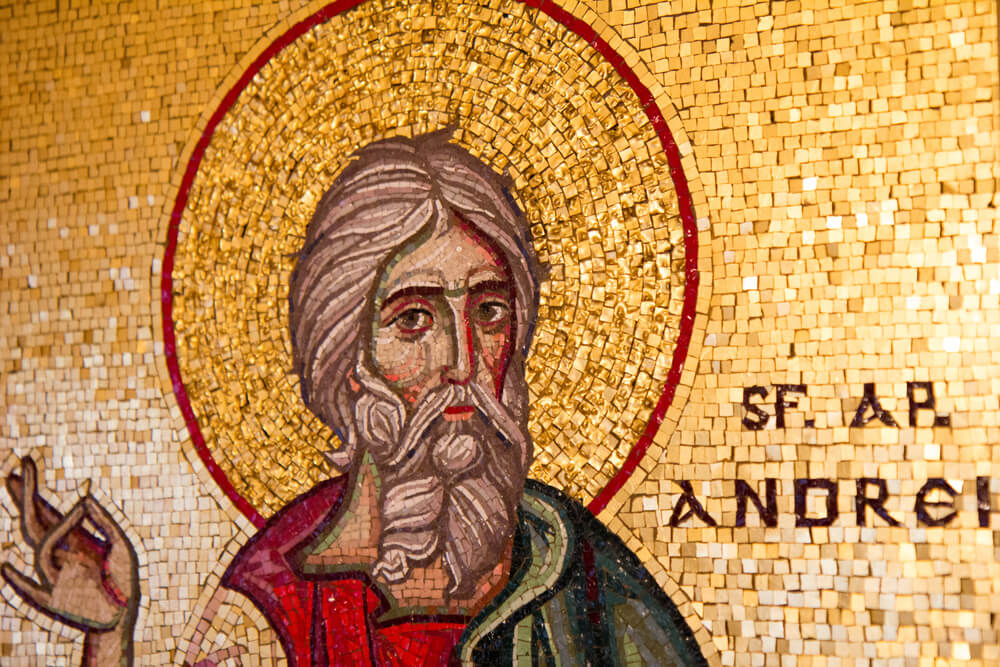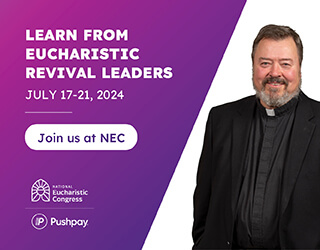In Scripture, God tells us to “be holy, for I the Lord your God, am holy.” And Jesus echoes this in the Gospel of Matthew, saying, “Be holy, as your Father in heaven is holy.” But what exactly does it mean to be holy?
That’s the question that Father Matthew Spencer, OSJ tackled recently on St. Joseph’s Workshop. He pointed out that though many in our society are drifting away from religion, there is still a powerful fascination when it comes to the holy and the sacred. So it is ever more important for us to recognize what holiness is – and what it isn’t.
“We know the classical description of holiness – being set apart, being consecrated,” Fr. Matthew said. “That is, reserved for a particular use. And when you and I are called to be holy, it has a particular meaning there. It means that our lives are going to be lived differently, set aside and set apart for God alone.”
Particularly during this season of Lent, many of us are aiming to grow in holiness, and have taken on penances and practices to assist us in that. But Fr. Matthew cautioned against viewing holiness as the prayers, practices, and penances that we do.
“Some people [think] that the spiritual life is, in itself, practice in holiness,” he said. “In other words, if you pray the right way, then all the sudden you’re holy. If you have a particular mystical experience, then all of a sudden you’re holy. If you can demonstrate to other people by your implacable peace that you wear always on your face then you are ‘holy.’ Or that’s what people will think.”
While prayer, mystical experiences, and profound peace are all good things, if we view holiness as simply a list of things we do, character traits we have, or outward appearances we adopt then we are making holiness more about ourselves than about the Lord.
So how can we know what holiness is? Fr. Matthew pointed to the Book of Leviticus, when God is speaking to Moses, to show us.
“God says, ‘Be holy, for I the Lord your God am holy.’ And then he jumps into a list of commandments,” Fr. Matthew pointed out. “You shall not steal, you shall not lie or speak falsely to one another. You shall not swear falsely by my name, that is, profaning the name of your God. You shall not defraud or rob your neighbor. You shall not withhold overnight the wages of your day labor, you shall not curse the deaf or put a stumbling block in front of the blind. But you shall fear your God, I am the Lord.”
“To me the powerful part of this is that the Lord is explaining to Moses how to be holy. How do you do that? You follow God’s commandments. You obey the precepts that God gives to you. I mean, that’s how to be holy. Of course, it’s made manifest in a myriad of ways. It’s not just about following the letter of the law, but following the spirit of the law. And when Jesus comes along, Jesus sums up all of the commandments of the Old Testament into two commandments, that we need to follow. Just two, and if you follow those two you can be holy.”
And what are the two commandments that lead to holiness? Jesus tells us they are to love the Lord with your whole heart, soul, mind, and strength. And the second is like it, to love your neighbor as yourself.
“I didn’t say they were easy,” joked Fr. Matthew. “They’re the hardest commandments. That we have to live to love, love, love. But that’s how we become holy. That’s how we preserve holiness in our own lives.”
Listen to the full conversation below, and tune-in to St. Joseph’s Workshop weekdays at 7:00 p.m. Eastern/4:00 p.m. Pacific on Relevant Radio® and the Relevant Radio App.
Podcast: Play in new window | Download
Subscribe: RSS


